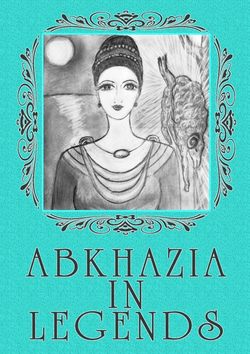Читать книгу Abkhazia in legends - Lina Belyarova - Страница 8
About the Apswara and religion
ОглавлениеA code of etiquette known as “Apswara” which includes traditions respecting age, hospitality, eloquence, bravery is instilled in the Abkhazians along with their mothers’ milk and handed down from parents to offspring generation by generation. The word Apswara means “to be Abkhazian”.
The etiquette and norms of behaviour reflected in the Nart epic have long become established and deeply ingrained. The Nart epic tales also tell of the etiquette of the table followed by the Narts: “The Narts would come into their house one by one following the order of seniority. Then, they would take their seats at the table and make a toast to their mother, praising her to the skies. Meanwhile, the younger brothers would serve the elder ones at table…”.
Although the Abkhazians are divided into Christians and Moslems, there is no religious antagonism among them. The culture of religious tolerance is traditional. Even after the adoption of Christianity or Islam, almost all the Abkhazians have also kept alive their old traditional (pagan) faith, which has been the most widely practised religion in the community since ancient times.
One of the Nart epic tales narrates how Satanay Gwasha, the Mother of the Narts, aided by her gift of foresight, found out that her sons had got into trouble. Having raised her hands to the sky, and turning to Shashyu, the Blacksmith’s patron, pleaded with him for protection: “Oh, Almighty Shashyu, let my sons come back home alive and unharmed! I am obligated before You to light a hundred candles in the Land of Heaven and raise hundreds of sheep for sacrifice”. On hearing Satanay Gwasha’s pleas, Shashyu drew the sides at war apart.
